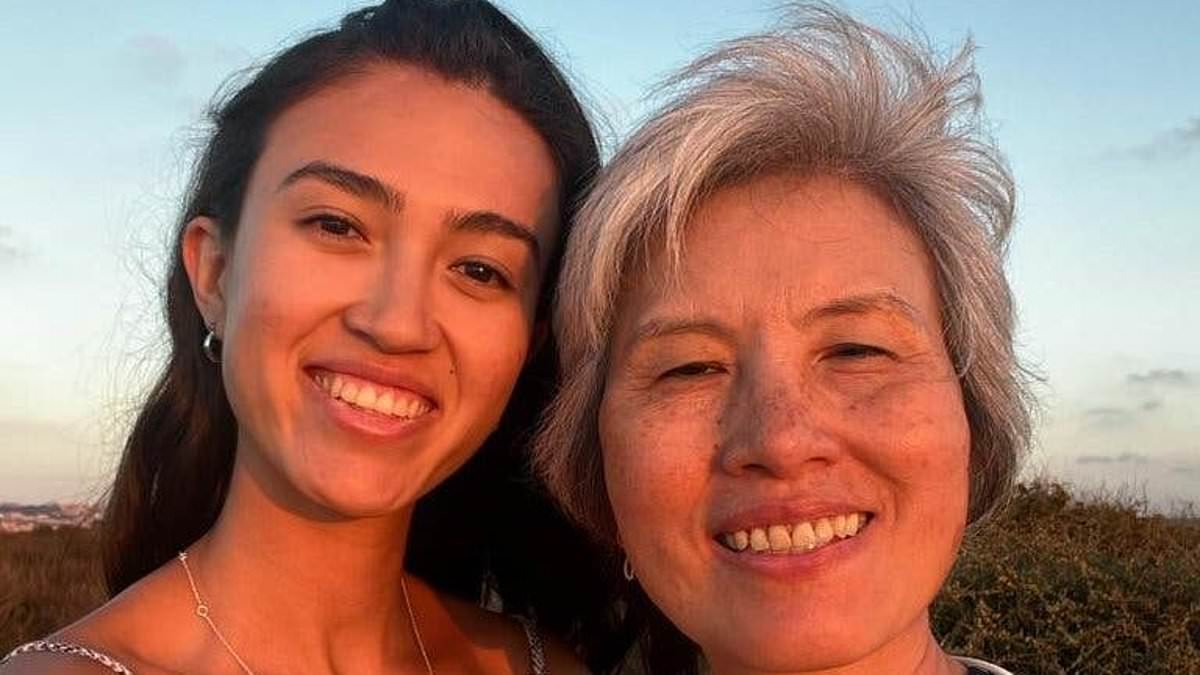The mother of rescued Israeli hostage Noa Argamani has died of brain cancer after spending her final days with her daughter.
Liora Argamani’s death comes just over three weeks after Noa was freed from Hamas captivity and brought home by Israeli special forces.
Noa’s plight made headlines around the world after the 26-year-old was kidnapped from the Nova festival on October 7, with disturbing footage showing terrorists taking her on the back of a motorbike into Gaza.
Her mother, who had stage four cancer, feared she would not live long enough to see her daughter again, and pleaded with Hamas to free her and the Israeli and US governments to bring her home.
After at last being reunited with her in June, Liora ‘spent her final days alongside her daughter Noa, who returned from captivity, and her close family,’ the hospital where she was being treated said in a statement as it announced her death today.
‘We relay the family’s request to respect its privacy at this difficult time,’ Icholov Hospital in Tel Aviv said in the statement.
Israeli troops rescued Noa and three other hostages after 245 days in the Gaza Strip in the largest and most successful rescue operation of the war on June 8.
Noa was seen being directed by her rescuers to a car before being pulled out of Gaza in a military helicopter and returned safely to a hospital in Ramat Gan, Israel .
Three commandos from Yamam, Israel’s national counter-terrorism unit, involved in the rescue revealed that the first thing Noa did upon being rescued was ask about her mother.
In an interview with Israeli magazine Walla, one of the commandos said: ‘Her first question was whether her mother was still alive. I told her yes.
‘She looked right and left at us and asked again if we were sure. We told her yes, “that’s why we came, to bring you back to your mother.”‘
Emotional scenes showed Noa reunited with her father Yakov on his birthday – the first time in more than half a year that they had seen each other since her capture.
She was pictured hugging her father and reintegrating back into civilian life, enjoying a coke and smiling and laughing as she spoke with friends and loved ones.
Within hours she was rushed to the Ichilov Medical Centre in Tel Aviv to see her mother. Reports at the time suggested the pair would be treated alongside each other in hospital.
After their reunion, doctors said Liora ‘believed that Liora understood’ her daughter was safe but wasn’t able to express her feelings.
Describing the reunion, Noa’s father, Yaakov, said: ‘Unfortunately her mother is in a very difficult condition. They met, but it was very difficult.’
Over the weekend, a much healthier Noa spoke in a video shared by the Hostages and Missing Families Forum.
In the moving, two-minute video shown on a giant screen in the centre of Tel Aviv, Noa shared her deep concern for her parents during her eight months in captivity.
‘As an only child to my parents – and a daughter to a mother with a terminal illness – my biggest worry in captivity was for my parents,’ she said.
‘It’s a great privilege to be here after 246 days in Hamas captivity. It’s a great privilege to be by my mother’s side after 8 months of uncertainty.
‘It’s a great privilege to see my parents, surrounded by so many good people.’
She also called for ‘everything possible’ to be done to free those still trapped in Gaza – including her boyfriend.
‘I want to take this opportunity to remind everyone that there are still 120 hostages in Hamas captivity. Among them is Avinatan Or, my partner, from whom I was separated at the moment of abduction.’
Hamas led a bloody incursion into southern Israel on October 7, killing some 1,170 people and seizing more than 250 hostages, according to Israeli tallies.
The group has justified the attack as a response to what it called Israeli crimes against the Palestinian people.
Horrifying scenes showed Hamas and other factions wielding Kalashnikov-style assault rifles as they stormed into towns and a music festival in Israel.
In the months since, Israel has pounded the dense Gaza Strip with aerial attacks, displacing the vast majority of the population.
Around 80 per cent of Gaza’s 2.3 million people have fled their homes, severe hunger is widespread and UN officials say parts of the territory are experiencing famine.
Nearly 38,000 people are reported to have been killed in Israel’s attacks, according to the Palestinian Health Ministry, which does not distinguish between civilians and combatants in its tally.
Israel has stated its war objectives to be returning the hostages and definitively destroying Hamas.
Criticism has fallen on Israel from its allies over civilian casualties and the failure to return the hostages after nearly nine months of fighting.
